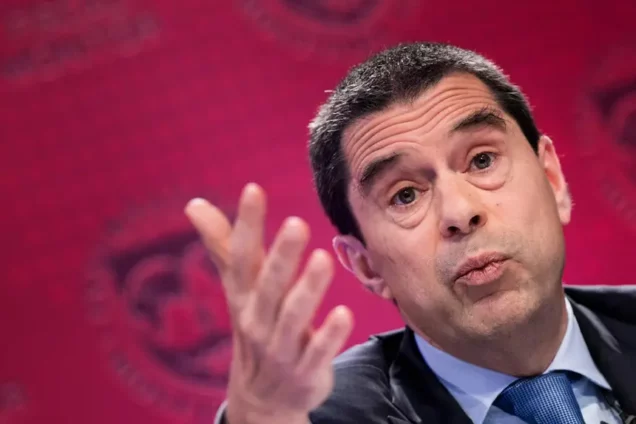The International Monetary Fund is advising African countries including Ghana to rethink their fiscal policy following repeated external and domestic shocks from rising debt vulnerabilities in their economies.
Under unchanged policies, the Fund said, the region’s public debt-to-Gross Domestic Product (GDP) ratio will continue to trend upward, increasing by over 10 percentage points over the next five years.
This it warns would crowd out private investment, raise sovereign risk, and limit countries’ ability to invest in human and physical capital.
Speaking at the 12th African Fiscal Forum, the Director of the Fiscal Affairs Department at the IMF, Vítor Gaspar, called for the design of credible medium-term fiscal strategies that could help preserve fiscal sustainability and rebuild buffers while addressing the region’s development goals.
“The IMF has been asking the question, how to pay for it all [debt]; the question is relevant for all of the IMF membership. But it is particularly pressing for countries in Sub-Saharan Africa with a large development spend in the months. From mid-2022 to the end of 2023, no country from Sub-Saharan Africa issued bonds in the Eurobond market. That was a manifestation of others breaking funding squeeze that has changed in January [2024] and February [2024] with the number of countries issuing significant amounts”.
“But the coupon rates and yields in secondary markets have stayed very high”, he added.
He continued that the debt signals have elevated bond risks, stressing, “I have already emphasised that spending pressures for development are particularly high for Sub-Saharan Africa. Elevated in forex trade and a strong dollar makes servicing dollar denominated debt more expensive.”
He mentioned that aid flows and financing from China have been declining for some years.
This year’s Forum focused on how to set fiscal targets and determine the pace and composition of the potential adjustment depending on countries’ specific circumstances. The discussion also explored the role of institutions in addressing implementation challenges and how those institutions can be strengthened.
The panelists were made up of Daves de Sousa, Minister of Finance, Angola; Koen Doens, Director General for International Partnerships, European Commission; Njuguna Ndung’u, Minister of Finance, Kenya and Fati N’Zi-Hassane, Executive Director, Oxfam Africa.
Latest Stories
-
Managing Prediabetes with the Help of a Dietitian
15 mins -
Joy FM listeners criticise Achiase Commanding Officer’s election comment
36 mins -
Legal Aid Commission employees threaten strike over poor working conditions
38 mins -
Ghana ranked 7th globally as biggest beneficiary of World Bank funding
48 mins -
IMF board to disburse $360m to Ghana in December after third review
52 mins -
Former Bono Regional NPP organiser donates 13 motorbikes to 12 constituencies
58 mins -
Securities industry: Assets under management estimated at GH¢81.7bn in quarter 3, 2024
1 hour -
Gold Fields Ghana Foundation challenges graduates to maximise benefits of community apprenticeship programme
3 hours -
GBC accuses Deputy Information Minister Sylvester Tetteh of demolishing its bungalow illegally
3 hours -
Boost for education as government commissions 80 projects
3 hours -
NAPO commissions library to honour Atta-Mills’ memory
3 hours -
OmniBSIC Bank champions health and wellness with thriving community walk
3 hours -
Kora Wearables unveils Neo: The Ultimate Smartwatch for Ghana’s tech-savvy and health-conscious users
3 hours -
NDC supports Dampare’s ‘no guns at polling stations’ directive
3 hours -
Police officer interdicted after video of assault goes viral
4 hours

